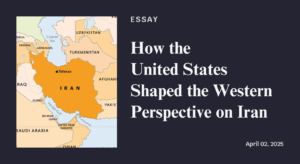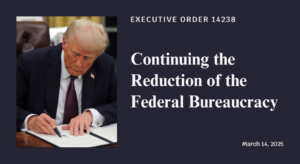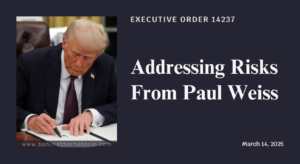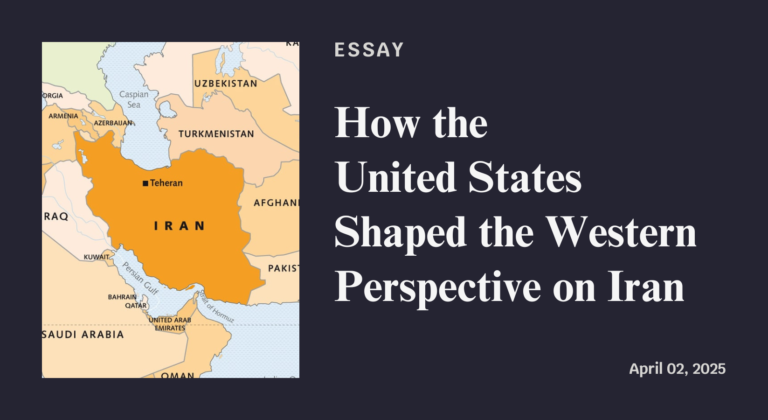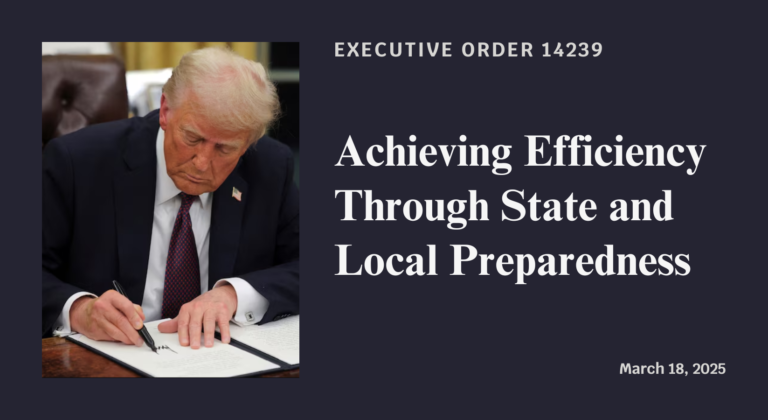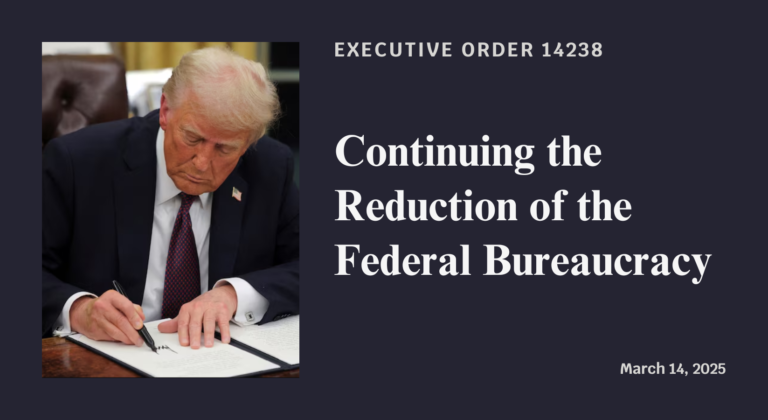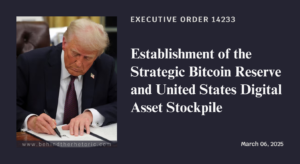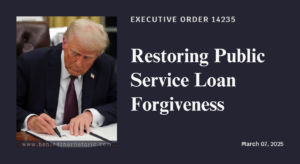Executive Order 14234
Establishing the White House Task Force on the FIFA World Cup 2026
Signed on March 07, 2025
On March 7, 2025, President Trump signed Executive Order 14234, establishing a White House Task Force to oversee the United States’ preparation for hosting the 2026 FIFA World Cup. The order creates a federal task force chaired by the President and Vice President, with participation from multiple government agencies, to coordinate logistics, security, and economic planning for the event. The Department of Homeland Security will house and provide administrative support for the task force, which will terminate on December 31, 2026, unless extended.
🔗 Read the Executive Order on the Federal Register
🔗 Read the White House Announcement
What You Should Know
The task force is heavily centralized under the White House with minimal independent oversight.
This executive order places direct control of World Cup planning under the President, with the Vice President acting as Vice Chair. The President appoints the Executive Director, who reports directly to the White House. While inter-agency collaboration is necessary for an event of this scale, the structure outlined in the order consolidates power within the White House, limiting transparency and independent oversight. The involvement of agencies such as the FBI, Department of Defense, and Homeland Security signals that security will be a major focus, but there are few details on public accountability mechanisms or how the task force will ensure civil liberties are protected.
Public funds will likely be used to subsidize private FIFA events.
The Department of Homeland Security is tasked with providing administrative and financial support for the task force, meaning taxpayer money will be allocated toward an event that primarily benefits FIFA—a private organization with a long history of corruption scandals. While economic benefits such as tourism and job creation are often cited as justification for government spending on large-scale sporting events, studies have shown that these events often fail to deliver long-term economic gains for host cities. Without clear public funding safeguards, this order sets the stage for significant government spending on FIFA’s behalf.
Security measures could lead to excessive surveillance and militarization.
With the FBI, Department of Homeland Security, and Department of Defense involved in planning, it is likely that the event’s security measures will include extensive surveillance, police presence, and possibly even military coordination. Past large-scale international events have led to the implementation of security policies that disproportionately target marginalized communities, increase law enforcement overreach, and justify the expansion of surveillance infrastructure that remains in place long after the event. The order does not specify how it will balance public safety with civil liberties, raising concerns about the potential for mass surveillance, racial profiling, and excessive policing.
The task force may prioritize corporate interests over local communities.
Historically, major sporting events like the World Cup have led to the displacement of low-income residents, increased policing in marginalized neighborhoods, and the use of public resources to cater to corporate sponsors. The executive order does not include provisions to protect local communities from these negative impacts. Without accountability measures, decisions made by the task force could prioritize FIFA and corporate partners at the expense of local businesses, residents, and workers.
Who Wins?
FIFA and its corporate sponsors
FIFA stands to benefit from government-backed logistical and security support, reducing its operational costs while maximizing profits. With the U.S. government providing planning resources, FIFA can offload responsibilities while still collecting billions in sponsorship, broadcasting rights, and ticket sales.
Private security and defense contractors
The involvement of multiple federal agencies suggests an extensive security apparatus, which will likely lead to increased contracts for private security firms, surveillance technology providers, and defense contractors. Companies specializing in event security, cybersecurity, and data monitoring may see a surge in government contracts related to World Cup preparations.
The tourism and hospitality industry
Hotels, airlines, and local businesses in host cities are expected to benefit from the influx of tourists. However, these benefits may not be evenly distributed, and workers in the service industry could face job insecurity and wage exploitation if labor protections are not prioritized.
Who Loses?
Taxpayers and local communities
Public funds will be used to subsidize planning and security for the World Cup, but there are no guarantees that local communities will see lasting economic benefits. Many previous World Cup host nations have experienced financial losses due to overspending on stadiums and infrastructure that go underutilized after the event.
Civil liberties and privacy advocates
The task force’s security planning could involve extensive surveillance measures, temporary policing policies, and increased law enforcement presence in host cities. These measures often disproportionately affect communities of color, immigrants, and activists, raising concerns about racial profiling and restrictions on public assembly.
Small and local businesses
While large corporations and FIFA sponsors will have guaranteed commercial opportunities, small and local businesses may struggle to compete. Many past World Cup hosts have seen restrictive commercial zones and permit requirements that benefit large international brands while sidelining local vendors.
Executive Order 14234 establishes a federally controlled task force to oversee the FIFA World Cup 2026, centralizing authority within the White House while relying on taxpayer resources to support FIFA’s private event. While the World Cup presents an opportunity to boost tourism and international engagement, the order lacks provisions to ensure economic benefits reach local communities, prevent excessive government spending, and protect civil liberties from heightened security measures. Without proper oversight, the task force risks prioritizing corporate interests over public well-being, reinforcing a pattern seen in past major sporting events.
Take Action
Demand transparency in government spending on World Cup preparations.
Public funds should not be used to subsidize FIFA’s private profits without strict oversight. Contact elected officials and demand that any government spending related to the event be made public, with clear accountability measures in place.
Advocate for protections against over-policing and surveillance.
Large-scale events have historically led to increased surveillance and policing in marginalized communities. Support civil liberties organizations working to ensure that security measures do not violate constitutional rights.
Support local businesses and workers affected by World Cup planning.
Encourage policies that prioritize small business participation in World Cup-related economic opportunities and protect workers from exploitative labor practices.
Stay informed and push for public input in World Cup planning decisions.
Major events impact host communities in significant ways. Attend city council meetings, follow task force developments, and advocate for local voices to be included in decision-making.
The FIFA World Cup 2026 should be an opportunity to celebrate global sportsmanship, not an excuse for government overreach, corporate favoritism, and wasteful spending. Stay informed, demand accountability, and ensure that the event serves public interests rather than private profits.
